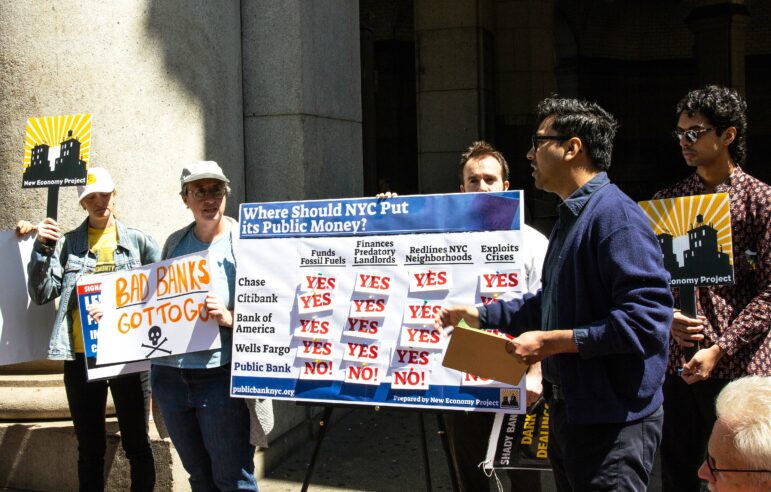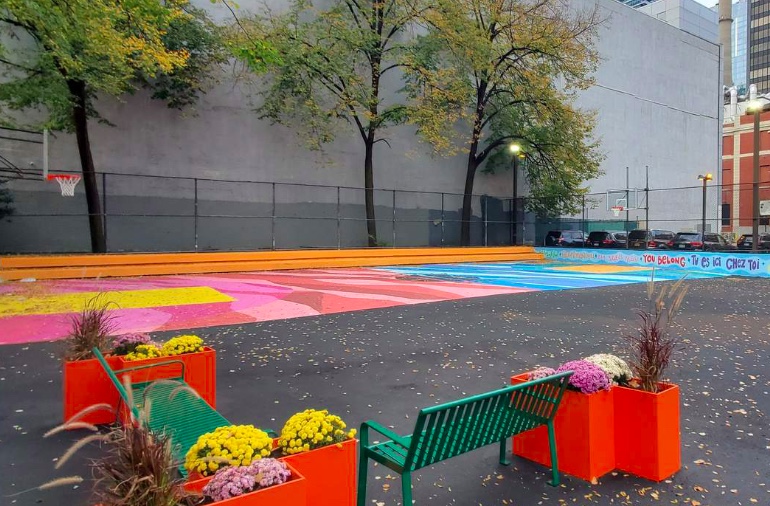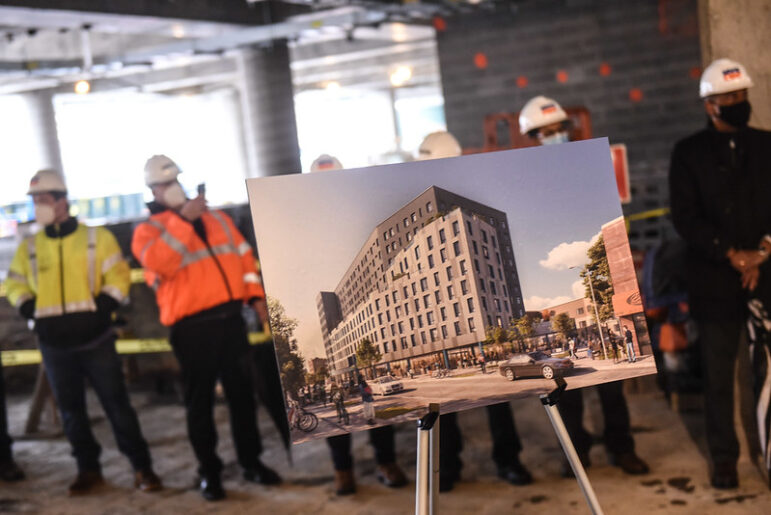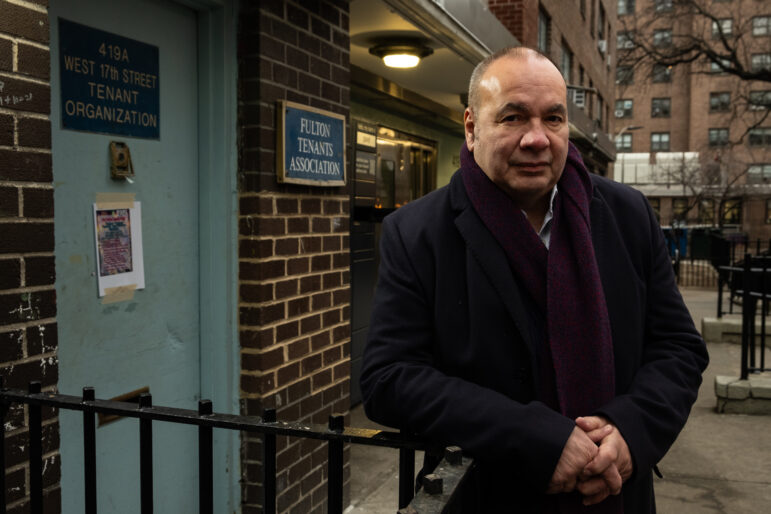For one group of New York City youth this fall, Monday afternoons have included an unusual digression from the typical schedule of classes and extracurricular activities: They meet for a course once a week in lower Manhattan to learn about their rights under the Constitution.
First offered over the summer, a seminar called “Surviving the Streets: Know Your Rights” has returned by popular demand from students who want to learn about the legal process and their place in it. Since these teenagers’ public schools are heavily patrolled by NYPD safety agents and stories of troubling confrontations with them have emerged, it’s no surprise that such a course is finding a passionate – if still relatively small – audience. Twenty students took the course over the summer, and 15 are currently enrolled at The Door, a youth services center on the edge of SoHo. They live in a city where such information might help them. A 2006 study performed by the RAND Corporation for the NYPD revealed that 9 of every 10 “stop and frisks” by police officers on the streets were performed on minorities. Young patrons of The Door are almost all minorities, most of whom hail from the city’s five neediest zip codes.
“It’s good info to know just in case,” said Damon Papis, an 18-year-old who’s been taking the class since September. We need to know “what the cops can and can’t do in different scenarios.” Papis believes that most of his friends have had or will have encounters with police officers.
It comes with the territory, according to Dianne Morales, executive director of The Door, who thinks there’s a “perceived negative connection between youth and crime” in the city. “There is a tendency to profile. Young people are more vulnerable and need to know how to protect themselves,” Morales said.
Lawyers from the downtown firm Cahill Gordon & Reindel are trying to provide that knowledge. Peter Sloane, a partner at Cahill who has experience working with youth, introduced the concept at The Door, where his firm already was providing pro bono legal services. “I wondered what I could teach to help kids,” he said. “What do they face on the streets?” Interacting with authority in a charged atmosphere is something they deal with every day in school and in their communities, he realized.
The resulting course has been designed and implemented by a rotating team of attorneys who bring legal know-how to the classroom. “Young people typically don’t have mentors on legal issues,” said Sogol Somekh, a Cahill associate who helps run the program. The lawyers also provide career counseling and act as role models. The kids applauded the instructors when the class first started, Somekh recalled.
~
“There has been a tremendous response” from youth in the program, says Morales. “There is a hunger to understand their rights.”
The enthusiasm comes through clearly from the moment class begins. Around 12:30 on a recent Monday, students aged 15 to 19 rowdily spilled into one of the classrooms at the center, falling silent as instruction began. The Door is a bustling multistory facility with dozens of young people coming in and out of meetings and workshops, but behind the doors of this room, students sat attentive and engrossed in the lesson being taught by two young men in shirt and tie. Kids began taking notes on bail procedures and adding to the discourse as the first case was presented. In this instance, basketball star Kobe Bryant was the suspect, and students were to decide whether he should be granted bail after being indicted on criminal charges. The discussion commenced, as some students eagerly responded, some quietly observed and others stoked the debate. “There are some future lawyers in here,” said lawyer Aaron Miller, who was teaching the lesson. “Excellent analysis.”
All the students were excited, but the older students were shrewder, seeming particularly keen on weighing the truth, asking questions and coming to a fair conclusion. For a generation of students who came of age since public school security was put under NYPD management a decade ago, bringing uniformed officers into their lives every day, the line between maintaining safety and enforcing discipline is an important one. On Nov. 23, an estimated 200 young people rallied at City Hall in support of the Student Safety Act – a bill introduced into City Council in August that would increase oversight of school safety agents. Without its passage, the bill’s advocates maintain, incidents like those alleged recently – one student handcuffed for writing on her desk, another sustaining minor injuries from aggressive agents – are likely to remain unchecked by any systemic protocol for the time being. “Children are much more likely to get arrested for disciplinary problems,” says Udi Ofer, advocacy director at the New York Civil Liberties Union, a primary sponsor of the bill. “What was once a trip to the principal’s office is now a trip downtown.”
According to Morales of The Door, successfully interacting with safety agents and police officers is a two-way street. There needs to be more youth development, but officers also must take a more “progressive” approach, she said.
A focus on the particular needs of adolescents already is part of standard training for police recruits, according to Sgt. Fernando Henriquez, an NYPD academy instructor who has been with the force for 10 years. During the six-month training period that all police officers undergo, recruits take a nine-hour course on specific circumstances around dealing with juveniles, including addressing special needs, effective behavior, and points of law, in addition to the study of constitutional law and the Bill of Rights. According to NYCLU’s Ofer, school safety agents receive different training, undergoing 14 weeks of instruction before reporting for duty. In an e-mail, Henriquez offered some additional guidance: “If a youth is questioned or apprehended by the police, my best advice would be to comply with an officer’s directions. Youths must realize that the police have a difficult job to do. After the incident, the juvenile can ask for a clarification of the encounter, if necessary.”
~
Between seminars like the one at The Door, the NYCLU’s popular legal information pocket cards, and debate around the issues motivating the Student Safety Act, plenty of efforts are afoot to empower and educate the city’s youth on their legal rights and how to act when confronted by police officers.
“They gotta be street smart,” seminar participant Papis said of his peers, subtly adding book learning to the usual meaning of that term. In the moment when doing or saying the right thing could defuse a potential problem, he said: “They need to know.”








